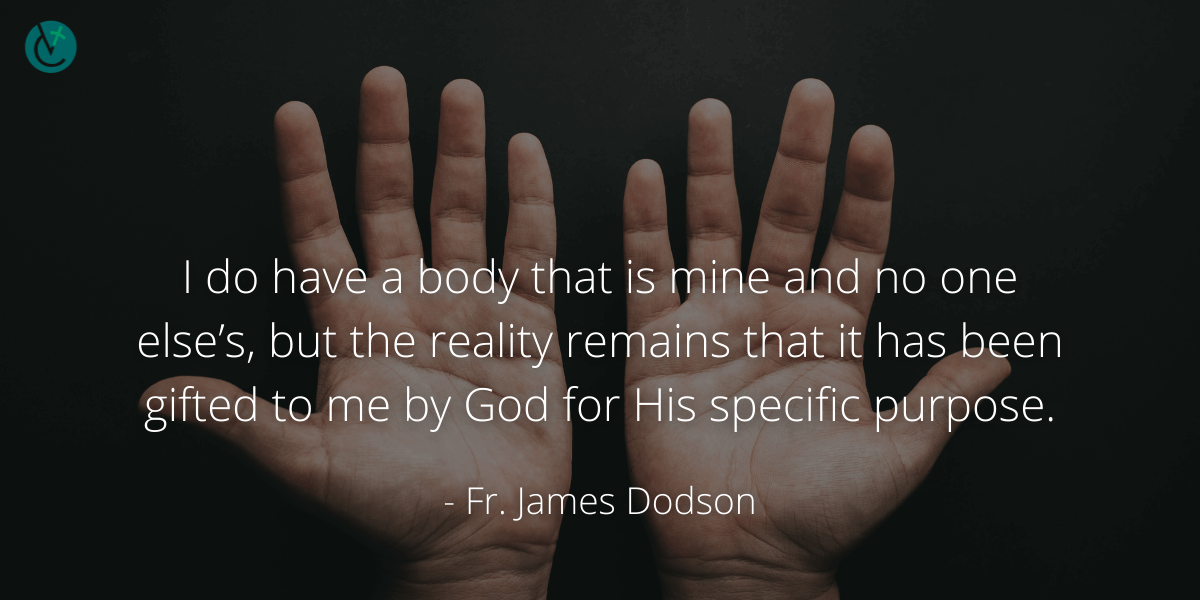
‘For this is my body, which will be given up for you’
These words of consecration bringing about the reality of Transubstantiation – ordinary bread and wine becoming the body, blood, soul and divinity of Jesus Christ – are spoken by the priest at every Holy Sacrifice of the Mass. In one sense, these words are unique to the priest in the context of the liturgical rite of the Mass. But in another sense, when lived in authenticity, sincerity and truth, these words apply to every single vocation.
So often we hear or use the words “Holy communion” but do we every pause to think if we are truly “in communion” with the divine one we receive at Mass and one another? As Christ’s body was offered as a sacrifice for our salvation, so our body, too, is to be offered as a sacrifice, particularly if we are to be in communion with the one we receive and profess to follow. When we receive the body and blood of our Lord Jesus Christ, we publicly state by our action that we are in communion with everything He is and teaches. There is no equivocation, no nuancing, no finessing. We are either in communion with Him or we are not.
We are imperfect, to be sure. But are we sinners still alive in His grace, honestly striving for ever greater and purer communion with our blessed Lord and one another? It is precisely here where self-denial and ever-greater sacrifice are demanded. There is no true communion without self-denial; there is no authentic communion without sacrifice. We need look no further than to the Most Holy Eucharist itself to know this truth. And it is precisely in the Most Blessed Sacrament, the source and summit of the life of grace, that we receive the supernatural strength needed to live a life of sacrificial communion, while always offering Almighty God the sacrifice of praise.
In a culture and world that is so self-indulgent and self-focused, “this is my body” resounds as a clarion call for so many people. True, it is a statement of fact that “I do have a body that is mine and no one else’s,” but the reality remains that it has been gifted to me by God for His specific purpose. And as God has revealed Himself to us in Jesus Christ, who gives Himself up for our salvation, so we learn from the words — “which will be given up for you” — the self-gift required in sacrifice that leads to ever-greater communion with God and neighbor. An isolated statement of fact, “this is my body” becomes in Christ so much more — a declarative proclamation of truth and faith because this body of mine “will be given up for you.”
Additionally, the sacrifice is not momentary, but perpetual. The priest, then, who utters these most holy and sacred words is a never-ending sacrifice to God for the salvation of His holy people. So, too, is the husband for the wife, the parent for the child, the mother for the unborn baby in her womb. In other words, I am not my own. You are not your own. The very words that bring about Holy Communion during the sacrifice of the Mass are meant to strike a chord resoundingly within the depths of our souls so that the proper worship of God incarnates communion on the altar and fosters that communion by feeding it into the hearts and minds of those longing to live their vocation gracefully – literally “filled with grace.” The worship of God, in and through the perfect sacrifice of Jesus Christ re-presented at Mass, powerfully establishes communion in, with and through Him, in whom all things live and move and have their being (Acts 17:28).
So, when I present myself to receive communion at Mass, do I really appreciate the mysterious reality into which I am entering? Do I know what I am getting myself into? Consider this: What difference does it make that the bread and wine change into the body, blood, soul and divinity of Jesus Christ, if after receiving our blessed Lord in holy communion, I do not? Cardinal Joseph Ratzinger summarized the point well in a 2002 lecture on Eucharist, Communion and Solidarity: “The purpose of the Eucharist is the transformation of those who receive it in authentic communion. And so, the end is unity, that peace which we, as separate individuals who live beside one another or in conflict with one another, become with Christ and in Him, as one organism in self-giving, to live in view of the resurrection and the new world.”
When we receive the very essence of our Lord Jesus Christ who is made present through the consecratory words of the priest at Mass, we must continue to undergo the transformative process by which we become like him whom we receive, and our life must become an ever- more tangible and visible proclamation of the words “this is my body, which will be given up for you.”
You and I are no longer our own, but “owned” by Him who consumes and transforms us because we feed on the Lord in holy communion. And as this relationship of worship, communion and vocation stretch toward its proper end, we may begin to understand what St. Paul wrote to the Corinthians: “When all things are subjected to [God], then the Son Himself will also be subjected to Him, who put all things under Him, that God may be all in all” (1 Cor 15:28).
—Father James Dodson is vocation director for the Diocese of Burlington.
—Originally published in the Summer 2022 issue of Vermont Catholic magazine.

